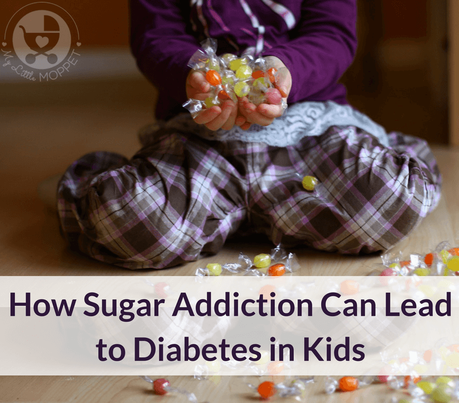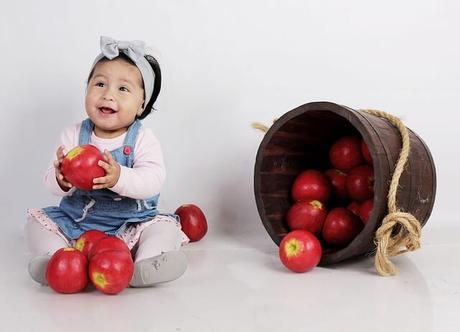November 8, 2016 Leave a Comment
Here’s a short scene that happens in many homes across the world: You’ve been trying to get your baby to say ‘Mama’ for several weeks now, and you’ve almost given up hope of hearing him utter that magical word when one day – it happens! He looks at you, eyes open, face eager and his little lips go ‘Ma ma’. You are over the moon and can’t describe your happiness in words! This deserves a little prize and you immediately promise him a little sweet treat.

Sounds familiar? I’m sure we’ve all done this at some point or the other. My sister did the same to her child too. Every time he exhibited good manners or surprised her by washing his hands before and after his meals, she rewarded him! And what better a reward for a kid than SWEETS!
However, these occasional rewards soon turned into daily habits. I could see it but she couldn’t; just like most parents who are wrapped up in their child’s current happiness. She gave in to his plea for chocolates and candies every time. He was getting addicted to sugar and the final result was this – a 2-year-old who got diagnosed with DIABETES!
How Sugar Addiction can Lead to Diabetes in Kids

I know the scenario described above is played out in different ways in many homes. Please note that I’m not trying to criticize your parenting style. As parents, we’ve all resorted to bribes or rewards at some point or the other, but it is important to understand the adverse effects of using sweets or candy as bait. It does not take much time for an once-in-a-while event to turn into a daily habit or in worse cases, an addiction.
It might seem far fetched to associate addiction to children, but it is possible. Children can easily get addicted to sugary foods which are of absolutely no nutritional benefit to the child. Candies, chocolates, artificial juices, soft drinks and even some brands of baby food are loaded with added sugar, in an attempt to improve flavor and make them more popular.
Research author Terri Lipmen and colleagues have reported an unexpected rise in the rate of Type 1 diabetes in kids younger than 5 years – cases have increased by 70% between 1985 and 2014. According to U.S. Center for Disease Control and Prevention, the rate of Type 1 will increase by 23% by 2050, if the current trend continues.
Identifying the Symptoms of Sugar Addiction and Diabetes in Kids

While diabetes does exhibit symptoms, it is often considered a silent disease as the signs aren’t visible till much later. Due to this, it often goes undetected, especially among very young children as they can’t talk about it. However, you can still stay alert by watching out for these signs:
- Consuming a large amount of sugar on a regular basis
- Can’t seem to settle down at bedtime
- Exhibits frequent mood swings or tantrums
- Finds it difficult to sit still and focus on a task
To know whether your child is taking in a lot of sugar, you need to look at everything he eats. Processed sugar can be found in cereals, fruit juices, waffles, doughnuts, candies, chocolates, breads, jellies and ice creams. If you thing that your child is getting addicted to sugar or sugary foods, you can try some preventive measures to get your child back on track.
6 Tips to Stop Sugar Addiction and Prevent Diabetes in Kids

1. Completely cut out processed and ready-to-eat foods from your child’s diet. Focus more on natural foods that are free from added sugar or artificial flavors.
2. Teach your kid to have a healthy breakfast at the start of the day. Skip sugary cereals and opt for savory options
3. Avoid using sweets or candy as a reward or as a bribe. Stop associating desserts with good times and focus on bonding or physical activity instead.
4. Include balanced meals that contain healthy food from all food groups – grains, protein, dairy, fruit, vegetables, nuts.
5. Stress on consuming more water. Ban soft drinks completely – they are extremely unhealthy. Skip packaged fruit juices and make your own at home without adding sugar.
6. Replace refined grains with whole grains like whole wheat, brown rice, oats, cornmeal and millets.
Sweets have always been associated with celebrations and success in our culture. It’s not a bad idea to continue traditions or to pamper your child, but we need to make sure that it’s not at the cost of their health. This World Diabetes Day, let’s pledge to remove all kinds of sugary foods from our homes. Your little one is sweet enough; you don’t need all the extra sugar!
Author
Siddhartha Ahluwalia is CEO of Babygogo Parenting App. Moms ask questions and get answers on parenting from other experienced moms and doctors.
+1 Tweet Share PinShares 0Health, Toddler Nutrition diabetes, health, health tips, healthy, healthy eating, healthy food for toddlers, nutrition
